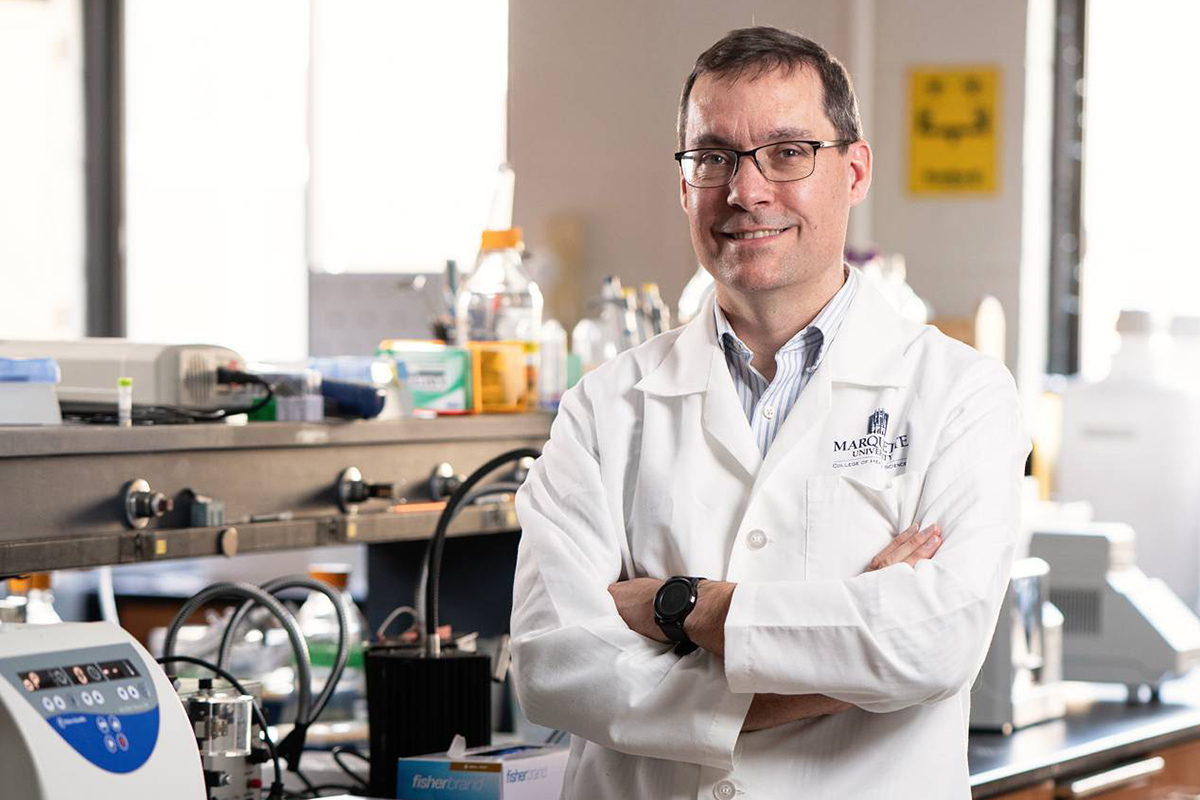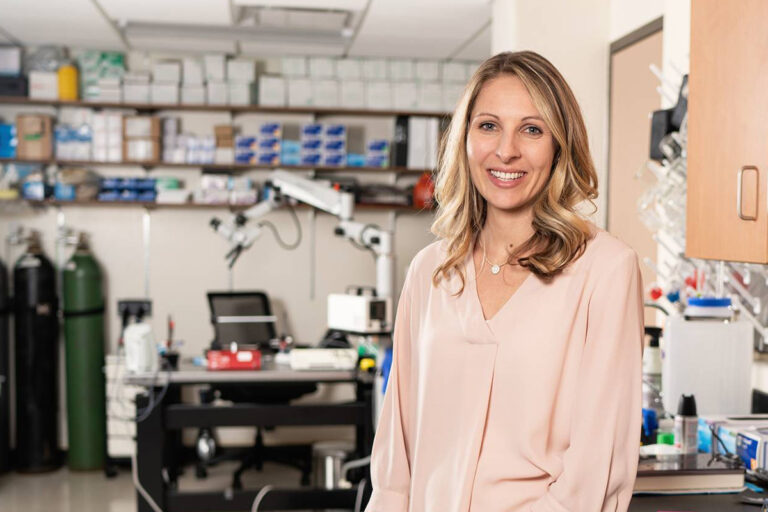Dr. Murray Blackmore, professor of biomedical sciences in the College of Health Sciences, has been awarded a $415,000 R21 grant from the National Institutes of Health to study the connection between DNA structure and axon growth to aid the recovery process for those who have suffered nervous system trauma.
The axon is the part of a nerve cell that carries signals from the brain to other parts of the body. These cable-like structures are damaged and predominantly dormant following many spinal cord injuries — improving their growth is key to improving outcomes after trauma.
One of Blackmore’s overall research objectives is to identify sets of transcription factors —proteins that can identify specific segments of DNA that allow neurons to improve their regenerative abilities.
“My lab’s goal with this award is to take advantage of a transition in nervous system development where a maturing neuron abruptly switches from an intrinsic state that allows axon growth to one in which axon growth is slow or abortive,” Blackmore says. “Identifying transcription factors that govern this process allow us to test for their effects on regenerative growth of axons that will hopefully lead to breakthroughs in rehabilitating individuals with nervous system trauma.”
Dr. David Baker, chair and professor of biomedical sciences, says Blackmore’s grant is a terrific opportunity to build on the established, cutting-edge research already occurring within his laboratory group.
“Dr. Blackmore has been a leading spinal cord injury researcher nationally, and his name and reputation have become synonymous with research excellence at Marquette” Baker says. “His new R21 grant award positions him well to further advance his academic reputation in the pursuit of developing ground-breaking new approaches for treating spinal cord injury.”
To read more on Dr. Blackmore’s research click here.



